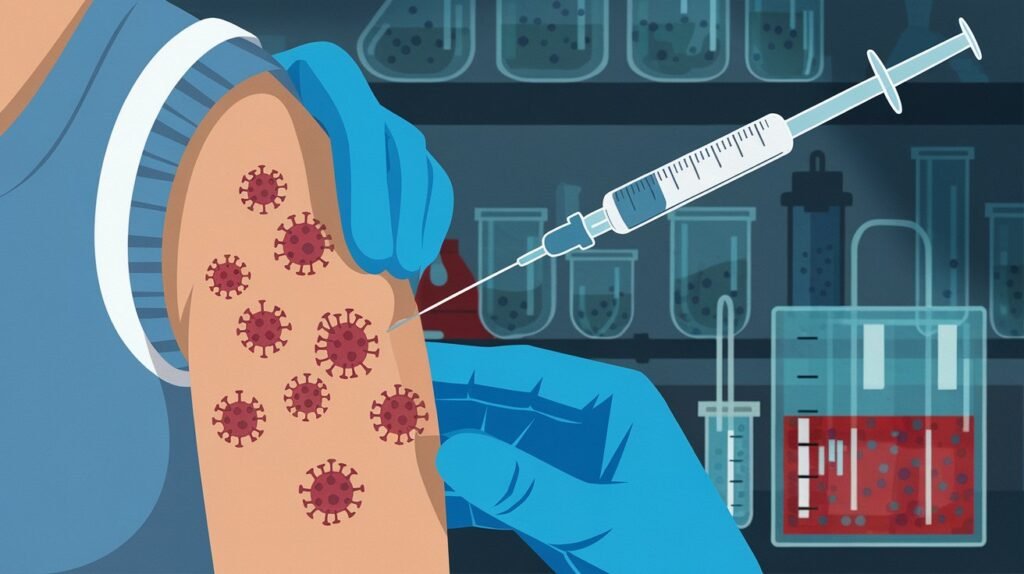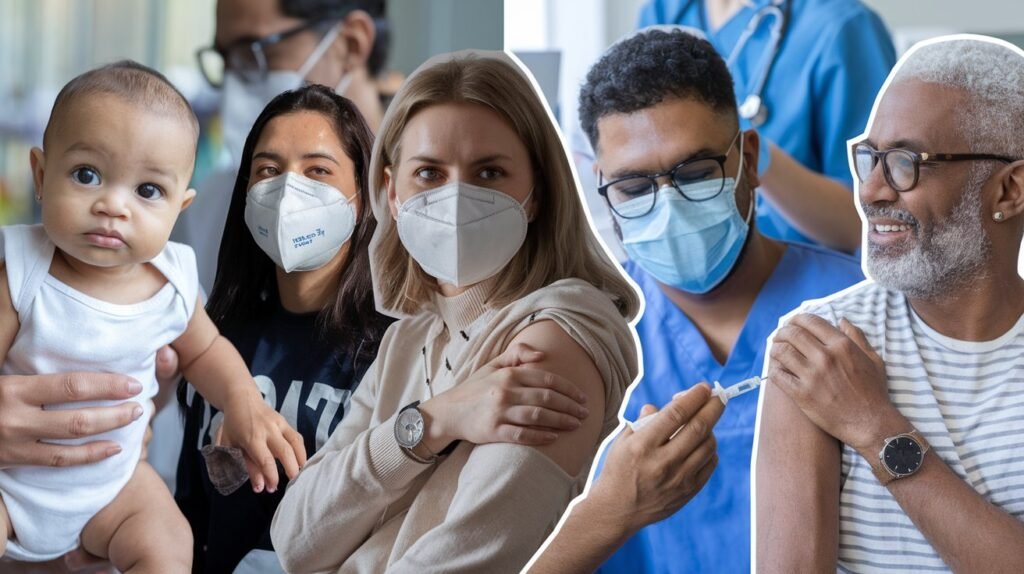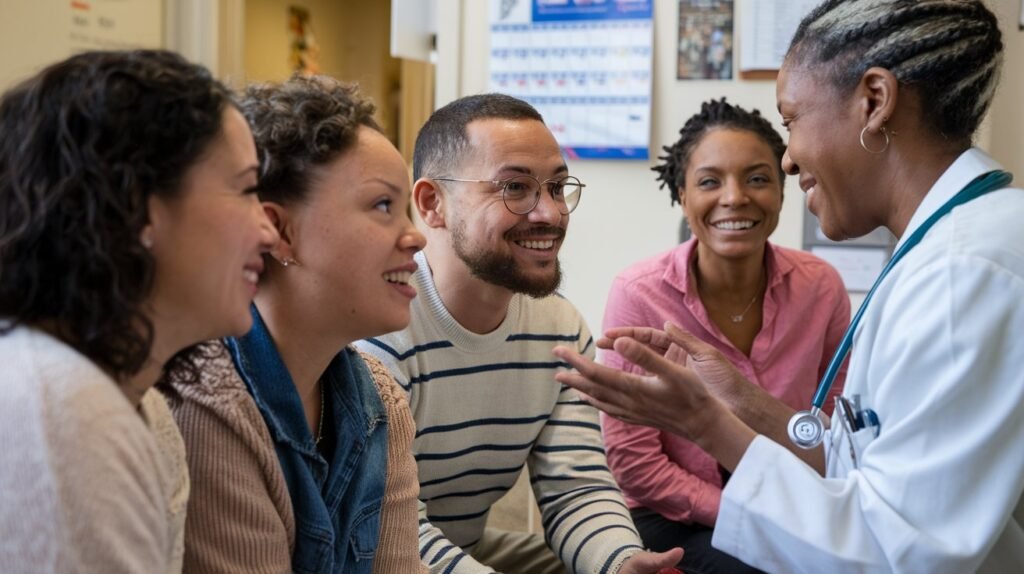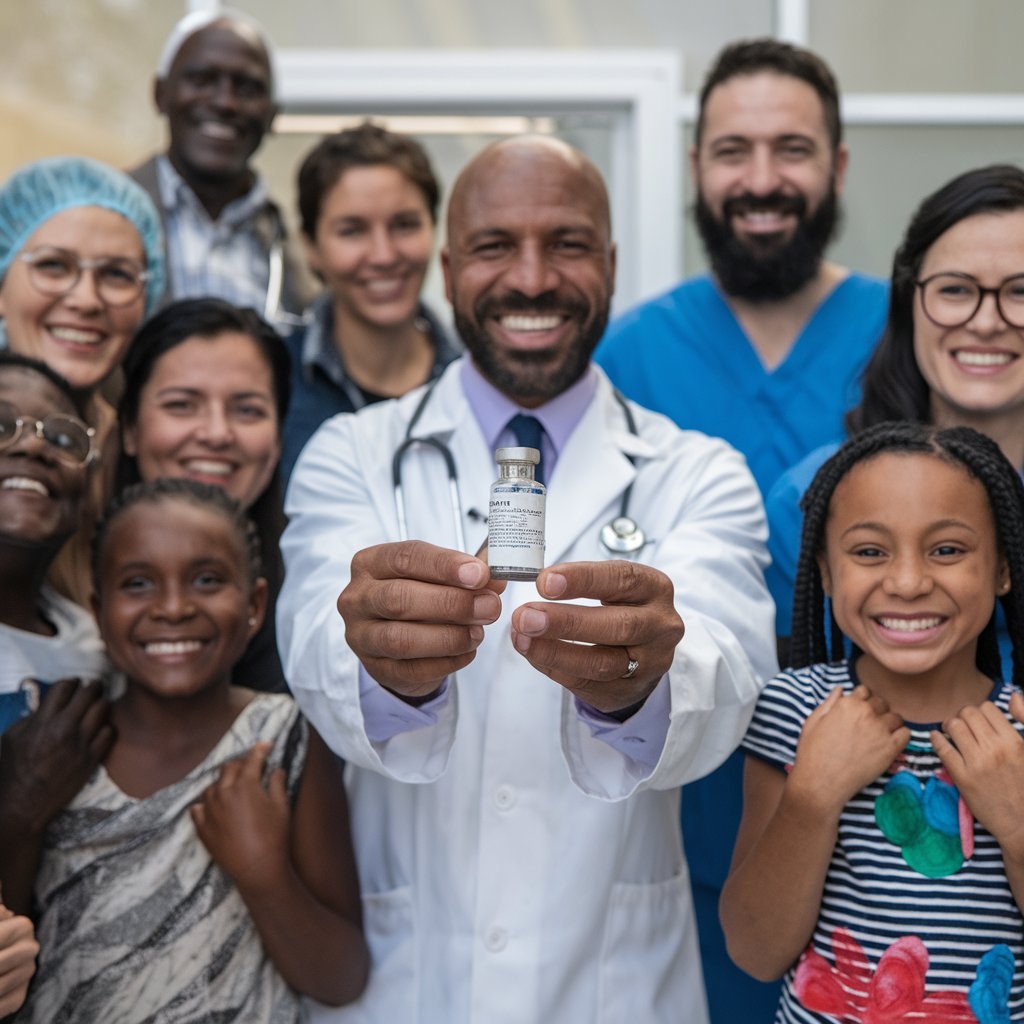Introduction to Immunization
Imagine a world where deadly diseases like polio, measles, and smallpox no longer threaten our communities. Thanks to the power of immunization, this vision is closer to reality than ever before. But what exactly is immunization, and why is it such a critical part of public health? Whether you’re a parent deciding on your child’s vaccination schedule, a professional curious about the science behind vaccines, or simply someone who wants to stay informed, understanding immunization is key to protecting yourself and those around you.
In this blog, we’ll dive into the fascinating world of vaccines—how they work, and why they matter. We’ll also tackle common misconceptions, explore the latest advancements in vaccine technology, and discuss how you can play a role in promoting immunization. Ready to learn how a simple shot can save lives and shape the future? Let’s get started.
Table of Contents
Immunization
The Importance of Immunization
When was the last time you thought about the impact of immunization on your life? Chances are, it’s been a while—and that’s a good thing. Thanks to vaccines, many of us no longer worry about diseases that once devastated communities worldwide. But let’s take a moment to appreciate just how vital immunization is to our health and society.
Why Immunization Matters
Immunization isn’t just about protecting individuals; it’s about safeguarding entire communities. Here’s why it’s so important:
- Saving Lives: Vaccines have eradicated or controlled deadly diseases like smallpox and polio, saving millions of lives annually.
- Preventing Outbreaks: By building herd immunity, vaccines protect those who can’t be vaccinated, such as newborns or people with certain medical conditions.
- Reducing Healthcare Costs: Preventing diseases through immunization is far more cost-effective than treating them.
The Ripple Effect of Vaccines
The benefits of immunization extend beyond health. Consider this:
- Economic Stability: Healthy populations are more productive, boosting economies and reducing poverty.
- Educational Opportunities: Fewer sick days mean children can stay in school and thrive academically.
- Global Security: Immunization helps prevent the spread of diseases across borders, making the world safer for everyone.
A Look Back: Immunization’s Greatest Achievements
Let’s not forget the incredible milestones vaccines have helped us achieve:
- The eradication of smallpox, a disease that once killed 300 million people in the 20th century alone.
- Near-elimination of polio, with cases dropping by 99% since 1988.
- Dramatic reductions in measles, tetanus, and whooping cough deaths.
Addressing the Skeptics
Despite its proven success, immunization sometimes faces skepticism. It’s important to remember that vaccines undergo rigorous testing for safety and efficacy. The risks of vaccine-preventable diseases far outweigh the minimal risks associated with immunization.
Your Role in the Bigger Picture
Immunization isn’t just the responsibility of healthcare providers or governments—it’s a collective effort. By staying informed and ensuring you and your family are up-to-date on vaccinations, you’re contributing to a healthier, safer world. Learn more about vaccine schedules from the CDC’s official guidelines.
So, the next time you hear about immunization, remember: it’s not just a shot in the arm—it’s a shield for humanity. Ready to learn more about how vaccines work and their global impact? Let’s keep going.
How Vaccines Work
Have you ever wondered how a simple shot can protect you from dangerous diseases? It’s not magic—it’s science! Understanding how vaccines work can help demystify the process and highlight why they’re such a powerful tool in modern medicine. Let’s break it down.

The Science Behind Vaccines
At their core, vaccines train your immune system to recognize and fight off harmful pathogens like viruses and bacteria. Here’s how they do it:
- Introducing the Invader: Vaccines contain a weakened or inactive part of a pathogen (or a blueprint, like mRNA) that mimics the real thing without causing illness.
- Triggering the Immune Response: Your immune system detects these harmless components and starts producing antibodies to fight them.
- Building Memory: Once the threat is neutralized, your immune system “remembers” the pathogen. If you’re exposed to the real thing later, your body can quickly mount a defense.
Types of Vaccines and How They Differ
Not all vaccines are created equal. Depending on the disease, scientists use different approaches to create effective immunization tools:
- Live-Attenuated Vaccines: Use a weakened form of the pathogen (e.g., measles, mumps, and rubella vaccine).
- Inactivated Vaccines: Contain killed versions of the pathogen (e.g., polio vaccine).
- Subunit, Recombinant, or Conjugate Vaccines: Include only specific pieces of the pathogen, like proteins or sugars (e.g., HPV vaccine).
- mRNA Vaccines: Provide genetic instructions for your cells to produce a harmless piece of the pathogen (e.g., COVID-19 vaccines).
Why Vaccines Are Safe and Effective
It’s natural to have questions about vaccine safety. Here’s what you need to know:
- Rigorous Testing: Vaccines undergo years of research and clinical trials to ensure they’re safe and effective.
- Continuous Monitoring: Even after approval, vaccines are closely monitored for any rare side effects.
- Proven Track Record: Vaccines have successfully controlled or eliminated diseases like smallpox and drastically reduced others like polio and measles.
The Role of Herd Immunity
Vaccines don’t just protect you—they protect everyone around you. When a large percentage of the population is immunized, it creates herd immunity, making it harder for diseases to spread. This is especially important for protecting vulnerable groups who can’t receive vaccines, like infants or individuals with certain medical conditions.
Addressing Common Questions
- Do vaccines overload the immune system? No, your immune system is designed to handle countless challenges daily.
- Can vaccines cause the disease they’re meant to prevent? Not with inactivated or mRNA vaccines. Live-attenuated vaccines carry a minimal risk, but it’s extremely rare.
The Bigger Picture
Vaccines are one of the most effective ways to prevent infectious diseases. By understanding how they work, you can make informed decisions about your health and contribute to a safer, healthier world.
Ready to explore the key vaccines recommended for different stages of life? Let’s move on to the next section!
Key Vaccines for Different Life Stages
Did you know that your need for vaccines doesn’t end after childhood? From the moment we’re born to our golden years, vaccines play a crucial role in keeping us healthy at every stage of life. But with so many vaccines out there, it can be overwhelming to know which ones you or your loved ones need. Let’s simplify it by breaking it down life stage by life stage.

Vaccines for Infants and Children
The early years are critical for building a strong immune foundation. Here are the must-have vaccines for kids:
- Hepatitis B: Given at birth to protect against liver infections.
- DTaP: Protects against diphtheria, tetanus, and pertussis (whooping cough).
- MMR: Shields against measles, mumps, and rubella.
- Polio Vaccine: Prevents a disease that can cause paralysis.
- Hib Vaccine: Protects against Haemophilus influenzae type b, which can lead to meningitis.
These vaccines are typically administered on a schedule recommended by health organizations like the CDC or WHO, ensuring maximum protection during the most vulnerable years.
Vaccines for Adolescents and Teens
As kids grow into teenagers, their vaccine needs evolve. Here’s what’s recommended for this age group:
- HPV Vaccine: Protects against human papillomavirus, which can cause certain cancers.
- Meningococcal Vaccine: Prevents meningitis and bloodstream infections.
- Tdap Booster: Reinforces protection against tetanus, diphtheria, and pertussis.
This is also a great time to catch up on any missed childhood vaccines, ensuring teens are fully protected as they enter adulthood.
Vaccines for Adults
Vaccination isn’t just for kids! Adults need to stay up-to-date too. Key vaccines include:
- Flu Vaccine: Recommended annually to protect against seasonal influenza.
- Shingles Vaccine: For adults 50+ to prevent this painful condition.
- Pneumococcal Vaccine: Protects against pneumonia and other infections, especially important for seniors.
- COVID-19 Vaccine: Essential for ongoing protection against the virus.
Staying current with these vaccines helps maintain your health and prevents the spread of diseases to others.
Vaccines for Seniors and Immunocompromised Individuals
As we age, our immune system weakens, making vaccines even more critical. Key recommendations include:
- High-Dose Flu Vaccine: Designed specifically for seniors for better protection.
- Pneumococcal Vaccines: Protects against serious lung infections.
- RSV Vaccine: Newly available for older adults to prevent respiratory syncytial virus.
For those with weakened immune systems, vaccines like the meningococcal and Hib vaccines may also be recommended. Always consult with a healthcare provider to tailor a vaccination plan to your specific needs. You can read this blog about vaccines during pregnancy.
Why Timing Matters
Vaccines are most effective when given at the right time. Delaying or skipping them can leave you vulnerable to preventable diseases. By following recommended schedules, you ensure continuous protection throughout your life.
Your Role in Staying Protected
Staying informed about the vaccines you need is the first step toward lifelong health. Whether you’re a parent scheduling your child’s shots or an adult keeping up with boosters, every vaccine brings us closer to a healthier future. Boost your immune system with vitamins and supplements to complement your vaccination schedule.
Let’s explore Vaccine Hesitancy and Misinformation next!
Addressing Vaccine Hesitancy and Misinformation
Have you ever hesitated before getting a vaccine or heard someone express doubts about immunization? You’re not alone. Vaccine hesitancy is a growing challenge, fueled by misinformation and a lack of trust. But why does this happen, and how can we address it? Let’s dive into the root causes of hesitancy and explore ways to build confidence in vaccines.
Understanding Vaccine Hesitancy
Vaccine hesitancy isn’t just about saying “no” to vaccines—it’s a complex issue influenced by a variety of factors:
- Misinformation: False claims about vaccine safety or effectiveness spread quickly, especially on social media.
- Fear of Side Effects: Concerns about rare adverse reactions can overshadow the proven benefits of vaccines.
- Lack of Trust: Distrust in healthcare systems, pharmaceutical companies, or government recommendations can play a role.
- Cultural or Religious Beliefs: Some communities may have beliefs that conflict with vaccination practices.
The Impact of Misinformation
Misinformation about vaccines can have serious consequences:
- Declining Vaccination Rates: Lower immunization rates lead to outbreaks of preventable diseases.
- Erosion of Public Trust: False narratives can undermine confidence in science and medicine.
- Health Inequities: Vulnerable populations may be disproportionately affected by the spread of misinformation.
Strategies to Combat Hesitancy

Addressing vaccine hesitancy requires empathy, education, and open dialogue. Here’s how we can make a difference:
- Provide Clear, Accurate Information:
- Share evidence-based resources from trusted organizations like the CDC or WHO.
- Explain how vaccines are developed, tested, and monitored for safety.
2. Listen and Address Concerns:
- Acknowledge people’s fears and questions without judgment.
- Offer personalized advice by connecting them with healthcare professionals.
3. Leverage Trusted Messengers:
- Encourage community leaders, influencers, and healthcare providers to advocate for vaccines.
- Use relatable stories and testimonials to highlight the benefits of immunization.
4. Combat Misinformation Proactively:
- Fact-check and debunk common myths about vaccines.
- Promote media literacy to help people identify credible sources.
Real-Life Success Stories
Communities around the world have successfully tackled vaccine hesitancy by building trust and fostering open conversations. For example:
- In rural India, local health workers used culturally relevant messaging to increase polio vaccination rates.
- In the U.S., community-led campaigns helped boost COVID-19 vaccine uptake among hesitant populations.
These examples show that with the right approach, it’s possible to turn hesitation into confidence.
Your Role in the Solution
You don’t have to be a healthcare professional to make a difference. Here’s how you can help:
- Stay Informed: Arm yourself with accurate information about vaccines.
- Share Responsibly: Use your platform to spread credible resources, not myths.
- Lead by Example: Get vaccinated and share your positive experience with others.
Moving Forward Together
Vaccine hesitancy is a challenge, but it’s one we can overcome. By addressing concerns with compassion, providing reliable information, and fostering trust, we can ensure that more people benefit from the life-saving power of vaccines.
Ready to explore the common FAQs about immunization? Let’s keep going!
FAQs About Immunizations
1. Are vaccines safe?
Absolutely. Vaccines undergo rigorous testing in multiple phases of clinical trials before they’re approved for public use. Even after approval, they’re continuously monitored for safety. Serious side effects are extremely rare, and the benefits of vaccination far outweigh the risks.
2. Can vaccines cause the diseases they’re meant to prevent?
For most vaccines, no. Inactivated vaccines (like the flu shot) and mRNA vaccines (like the COVID-19 vaccines) cannot cause the disease because they don’t contain live viruses. Live-attenuated vaccines (like the MMR vaccine) use a weakened form of the virus, but the risk of causing illness is extremely low.
3. Why do we need so many vaccines?
Each vaccine protects against a specific disease, and some diseases require multiple doses to build strong, long-lasting immunity. Think of it like building a fortress—each vaccine adds another layer of protection to keep you safe.
4. What’s the difference between immunization and vaccination?
Great question! Vaccination refers to the act of receiving a vaccine, while immunization is the process by which your body becomes immune to a disease after vaccination. In short, vaccination leads to immunization.
5. Can I get vaccinated if I’m pregnant or have a weakened immune system?
In most cases, yes! Vaccines like the flu shot and Tdap (tetanus, diphtheria, and pertussis) are recommended during pregnancy to protect both mom and baby. For those with weakened immune systems, certain vaccines (like inactivated ones) are safe and highly recommended. Always consult your healthcare provider to determine the best approach for your situation.
6. Do vaccines contain harmful ingredients?
Vaccines contain ingredients that help make them safe and effective. For example:
- Adjuvants: Boost your immune response.
- Preservatives: Keep the vaccine sterile.
- Stabilizers: Maintain effectiveness during storage.
These ingredients are used in tiny, safe amounts and have been thoroughly tested.
7. What is herd immunity, and why does it matter?
Herd immunity occurs when a large portion of a community becomes immune to a disease, making its spread unlikely. This protects those who can’t be vaccinated, like newborns or people with certain medical conditions. The more people who get vaccinated, the stronger this protective shield becomes.
8. Can I delay or skip vaccines?
Delaying or skipping vaccines can leave you or your child vulnerable to preventable diseases. Vaccines are timed to provide protection when it’s needed most, so it’s best to stick to the recommended schedule. If you’ve missed a dose, talk to your healthcare provider about catching up.
9. Are there side effects to vaccines?
Most side effects are mild and temporary, such as:
- Soreness at the injection site
- Low-grade fever
- Fatigue
These are signs that your immune system is doing its job. Serious side effects are extremely rare.
10. What’s the future of vaccines?
The future is bright! Advances in technology, like mRNA vaccines, are paving the way for faster development and more effective immunization tools. Researchers are also working on vaccines for challenging diseases like HIV and malaria.
For more tips on staying healthy, check out our articles on healthy lifestyle.
Conclusion
As we wrap up this deep dive into the world of immunization, let’s take a moment to reflect on what we’ve learned. From understanding how vaccines work to addressing common concerns and exploring their global impact, one thing is clear: immunization is one of the most powerful tools we have to protect our health and the health of our communities.
Think about it—how many lives have been saved because of vaccines? How many diseases have been eradicated or controlled, allowing us to live longer, healthier lives? The answer is in the numbers: millions of lives saved, countless outbreaks prevented, and a brighter future for generations to come.
But the story of immunization doesn’t end here. It’s a story that continues to evolve with every new vaccine developed, every child protected, and every community empowered. It’s a story that includes you. Whether you’re staying up-to-date on your vaccinations, sharing accurate information with others, or simply learning more about the science behind vaccines, you’re playing a vital role in this ongoing journey.
So, the next time you hear about immunization, remember: it’s not just about a shot or a schedule. It’s about hope, progress, and the collective effort to create a healthier world. It’s about protecting the most vulnerable among us and ensuring that future generations can thrive free from the threat of preventable diseases.
Thank you for taking the time to explore this important topic with us. If you found this information valuable, share it with someone who might benefit. Together, we can spread knowledge, dispel myths, and champion the life-saving power of vaccines.
References
- World Health Organization (WHO) – Immunization and Vaccines
- Centers for Disease Control and Prevention (CDC) – Vaccines and Immunization
- History of Vaccines – The College of Physicians of Philadelphia
- Mayo Clinic – Vaccine Safety and Effectiveness
- UNICEF – Immunization and Child Health
- National Institute of Allergy and Infectious Diseases (NIAID) – Vaccine Research
- American Academy of Pediatrics (AAP) – Vaccine Recommendations
- Gavi, the Vaccine Alliance – Global Immunization Efforts
- Johns Hopkins Medicine – Vaccine Safety and Myths
- The Lancet – Peer-Reviewed Articles on Vaccines and Public Health




